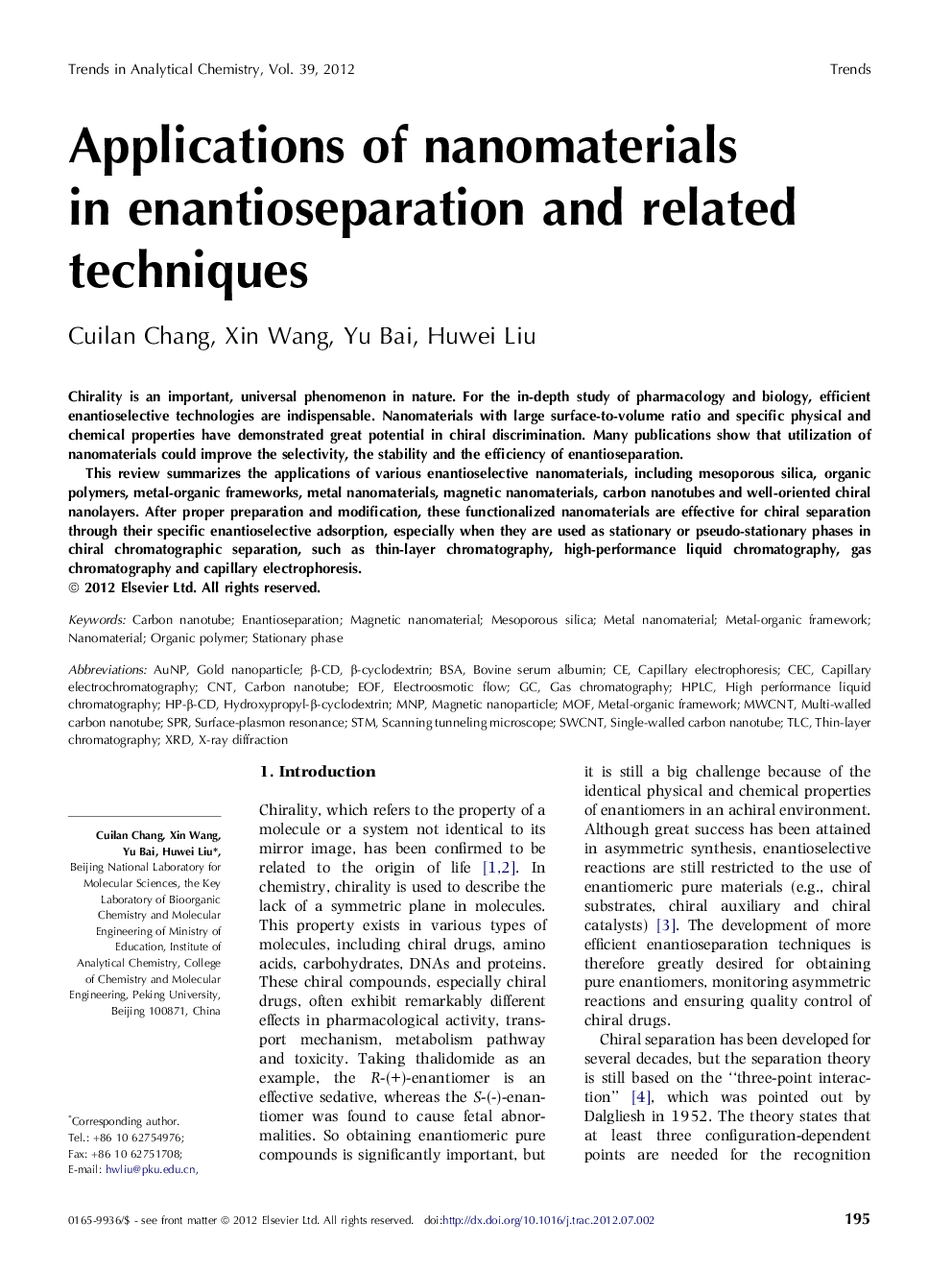| کد مقاله | کد نشریه | سال انتشار | مقاله انگلیسی | نسخه تمام متن |
|---|---|---|---|---|
| 1248062 | 1495925 | 2012 | 12 صفحه PDF | دانلود رایگان |

Chirality is an important, universal phenomenon in nature. For the in-depth study of pharmacology and biology, efficient enantioselective technologies are indispensable. Nanomaterials with large surface-to-volume ratio and specific physical and chemical properties have demonstrated great potential in chiral discrimination. Many publications show that utilization of nanomaterials could improve the selectivity, the stability and the efficiency of enantioseparation.This review summarizes the applications of various enantioselective nanomaterials, including mesoporous silica, organic polymers, metal-organic frameworks, metal nanomaterials, magnetic nanomaterials, carbon nanotubes and well-oriented chiral nanolayers. After proper preparation and modification, these functionalized nanomaterials are effective for chiral separation through their specific enantioselective adsorption, especially when they are used as stationary or pseudo-stationary phases in chiral chromatographic separation, such as thin-layer chromatography, high-performance liquid chromatography, gas chromatography and capillary electrophoresis.
► Applications of nanomaterials in enantioselective technologies are summarized.
► Nanomaterials could improve the selectivity of enantioselective technologies.
► Nanomaterials could improve the stability of enantioselective technologies.
► Nanomaterials could improve the efficiency of enantioselective technologies.
► Magnetic materials help speed, simplicity and cost-effectiveness of enantioselection.
Journal: TrAC Trends in Analytical Chemistry - Volume 39, October 2012, Pages 195–206